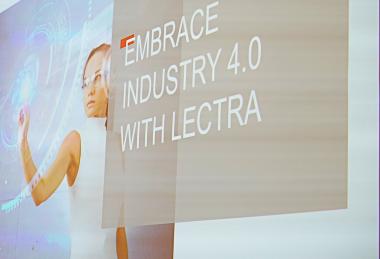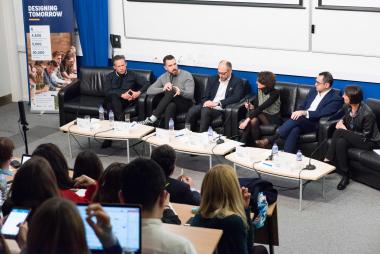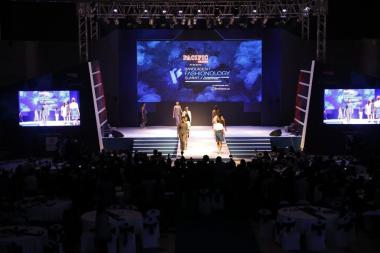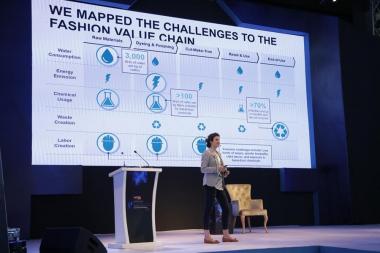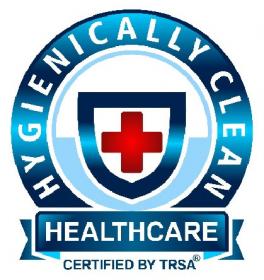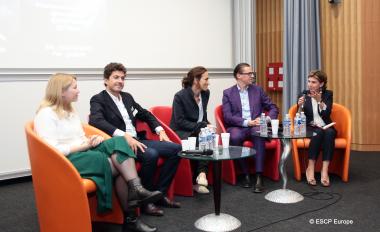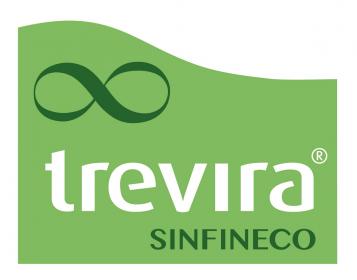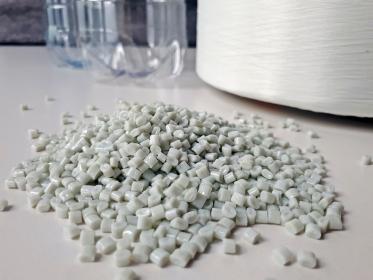Lectra: “Fashion Goes Digital”
- “Fashion Goes Digital” takes the Lead in Fashion Technology
- Customers get Industry 4.0-ready as Lectra unveiled latest product offerings and shared insights at annual fashion VIP event
Lectra, the technological partner for companies using fabrics and leather, put theory into practice at its recent fashion event by unveiling their latest 4.0 Cutting Room to more than 100 privileged industry professionals.
“Fashion Goes Digital” drew industry stakeholders and market experts from 20 countries, who gathered at Lectra’s International Advanced Technology Center (IATC) in Bordeaux-Cestas, France, to examine the real-life application of digitalization in fashion.
While the topic of digitalization served as a backdrop for the event, there was a recurring theme at the forefront: fashion companies need Industry 4.0 technology and support in order to be more precise in meeting the evolving needs of their digitally savvy consumers.
Nick Chiarelli, Client Partner of Foresight Factory, shed light on new business opportunities for fashion, Nora Kühner, founder of Nora Kühner Fashion Design Consulting, used her designer perspective to decode the digital future of product development, and Fabrizio Fantini, founder of Evo Pricing, showed participants how machine learning could help fashion companies predict consumer demand and avoid waste.
“While speaking about the future challenges and trends in fashion and luxury, the trend now is to use analytics to drive the entire production process,” highlighted Stephen Taylor, Principal Director of Kurt Salmon.
Waruna Tennakoon, General Manager of Group Cutting, Brandix, and Ajith Perera General Manager of Mathliya Plant, MAS Kreeda, also shared their Lectra customer experience. Based in Sri Lanka, both companies have established themselves as the country’s largest apparel exporters, with Brandix specializing in producing intimate and activewear, and MAS Kreeda in sportswear.
“Thanks to the digital revolution, consumers are now more specific in their demands. This will cause a shift in mass manufacturing where there will be smaller-volume orders coming in at a faster rate. As a result, manufacturing models have to be more agile in the immediate future,” explained Ajith Perera, “I am happy to see that Lectra is already spearheading this change by providing us with the necessary technology to help us meet market demand.”
There was no better time to put digitalization into context than during “Fashion Goes Digital”.
VIP guests got a sneak preview of the brand new, fully automated cutting room solution for fashion and apparel. Lectra’s Cutting Room 4.0 is an embodiment of Lectra’s commitment to empowering its customers with the best solutions to thrive in this new digital era. This avant-garde technology leverages industry 4.0 principles to provide greater agility, throughput, cost efficiency and in particular scalability in order to respond seamlessly to small batches orders and shorter lead times.
Jean-Yves Collet, CEO of Treize Roches Couture, a high-end French womenswear manufacturer, provided a testimonial on why his company chose to be one of the first to adopt this new solution. He explained how Lectra’s latest technology would help Treize Roches speed up their artisanal production process to bring products faster to market.
“When we discussed the possibility of a made-to-order production project, we could really foresee the benefits both in terms of quality and productivity. Industry 4.0 solutions do not yet exist in garment manufacturing. This is why we have decided to develop an Industry 4.0 cutting room. This will allow us, in the preparatory stages to automate the processes as much as possible and improve quality, productivity and training time.”
“We have unveiled our strategy last year where we have identified Industry 4.0 and digitalization as our key drivers. Our goal for this event is to show that we are, indeed, living and breathing Industry 4.0 and we do have what it takes to help our customers succeed in this era. Our latest cutting room 4.0 shows that we are not just talking about the future of fashion anymore, we are living in it right now as we speak,” concluded Céline Choussy Bedouet, Chief Marketing and Communications Officer, Lectra.
Lectra


